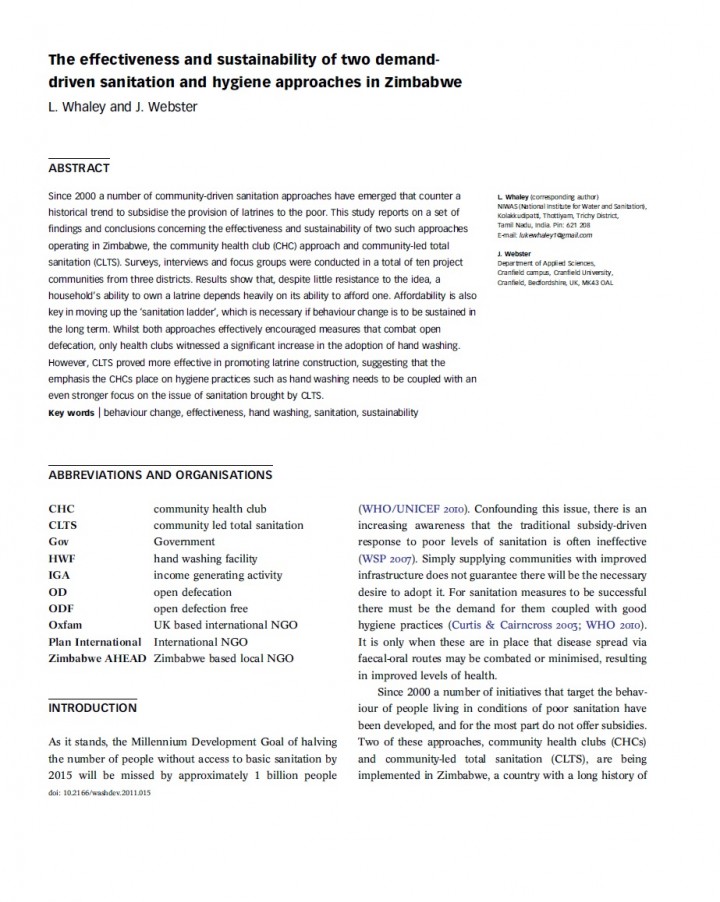The Effectiveness and Sustainability of Two Demand-Driven Sanitation and Hygiene Approaches in Zimbabwe Whaley, L., Webster, J. (2011)
Since 2000 a number of community-driven sanitation approaches have emerged that counter a historical trend to subsidise the provision of latrines to the poor. This study reports on a set of findings and conclusions concerning the effectiveness and sustainability of two such approaches operating in Zimbabwe, the community health club (CHC) approach and community-led total sanitation (CLTS). Surveys, interviews and focus groups were conducted in a total of ten project communities from three districts. Results show that, despite little resistance to the idea, a household’s ability to own a latrine depends heavily on its ability to afford one. Affordability is also key in moving up the ‘sanitation ladder’, which is necessary if behaviour change is to be sustained in the long term. Whilst both approaches effectively encouraged measures that combat open defecation, only health clubs witnessed a significant increase in the adoption of hand washing. However, CLTS proved more effective in promoting latrine construction, suggesting that the emphasis the CHCs place on hygiene practices such as hand washing needs to be coupled with an even stronger focus on the issue of sanitation brought by CLTS.
Bibliographic information
Whaley, L., Webster, J. (2011). The Effectiveness and Sustainability of Two Demand-Driven Sanitation and Hygiene Approaches in Zimbabwe IWA Publishing
Filter / Tags
English
Downloads
The Effectiveness and Sustainability of Two Demand-Driven Sanitation and Hygiene Approaches in Zimbabwe
Type: application/pdf
Size: 0.38 MB

